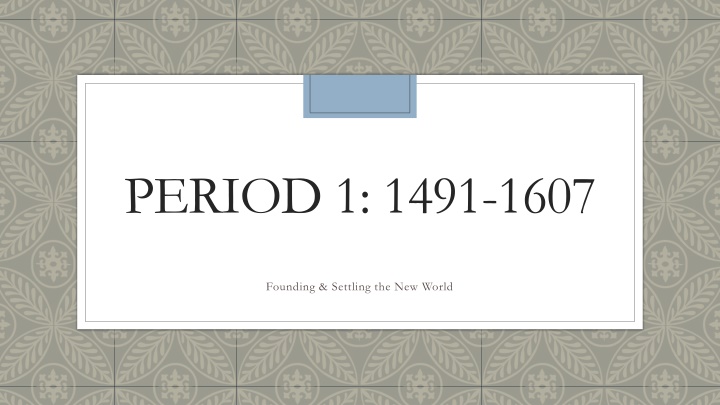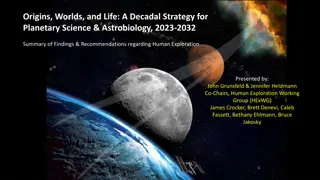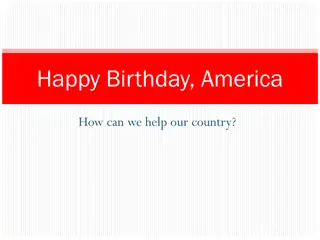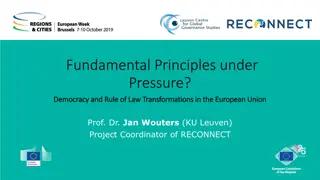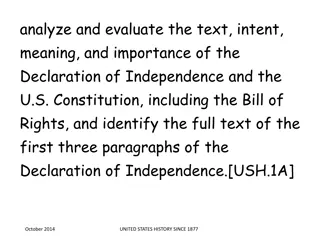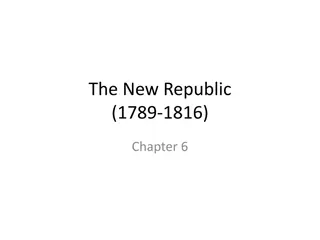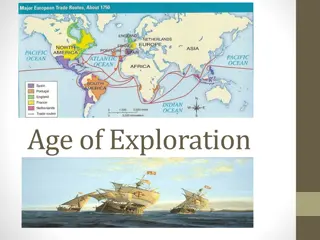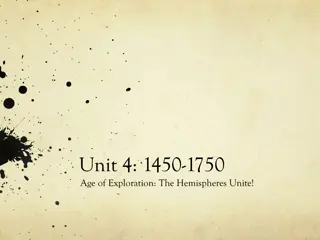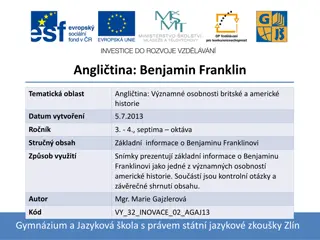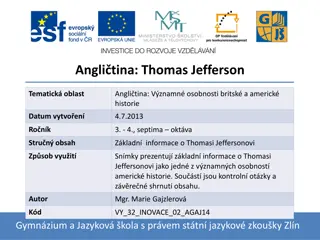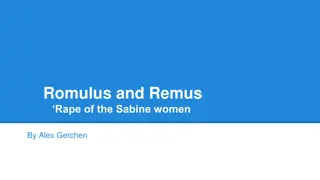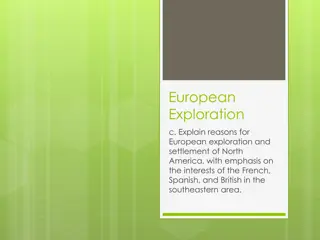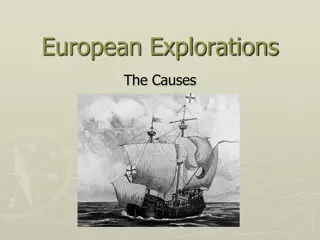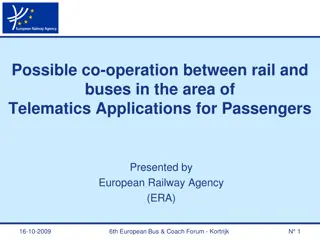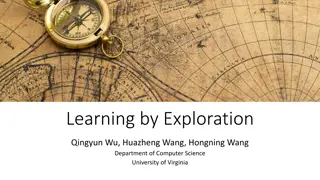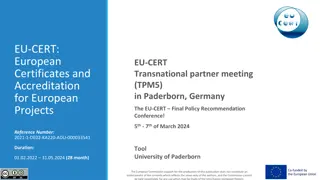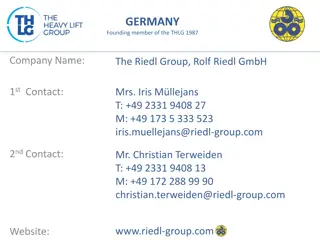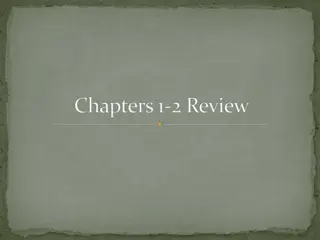Overview of Founding and European Exploration in the New World
Peopling North America involved diverse tribes and cultures, including advanced civilizations like the Pueblo, Incas, Mayans, and Aztecs. European exploration, driven by the pursuit of gold, glory, and spreading religion, led to the Columbian Exchange, impacting societies on both sides of the Atlantic through the exchange of goods, diseases, and people.
Download Presentation

Please find below an Image/Link to download the presentation.
The content on the website is provided AS IS for your information and personal use only. It may not be sold, licensed, or shared on other websites without obtaining consent from the author.If you encounter any issues during the download, it is possible that the publisher has removed the file from their server.
You are allowed to download the files provided on this website for personal or commercial use, subject to the condition that they are used lawfully. All files are the property of their respective owners.
The content on the website is provided AS IS for your information and personal use only. It may not be sold, licensed, or shared on other websites without obtaining consent from the author.
E N D
Presentation Transcript
PERIOD 1: 1491-1607 Founding & Settling the New World
Peopling North America hundreds of tribes, dozens of languages & cultures Estimated 54 million people in the Americas by Columbus Prominent American Civilizations THE PUEBLO CULTURE: CORN PLANTING, ENDED NOMADICISM Incas Peru Mayans Central America Aztecs Mexico and SW US Highly organized agricultural societies which featured trade, calendars, scientific findings, and various religions. NORTH AMERICAN SOCIETIES: VARIOUS COMBINATIONS AGRICULTURE AND HUNTING Cahokia Mound builders Mississippi Iroquois Confederacy New York Alliance of 5 tribes to end wars between groups, became one of the most powerful North American tribes Chinook Pacific Northwest Three Sister Farmers: Creek, Choctaw, Cherokee Southeastern Atlantic combination of beans, corn & squash Women: tended crops, men hunted = power to women, come matrilineal cultures Natural Resources : nature had spiritual properties, sparse populations did not overburden, often utilized firs for land clearing
European Exploration & The Columbian Exchange reasons for exploration Renaissance Period Advances in Technology Gunpowder, sailing compass, sextant, astrolabe Decline in feudalism Religion (GOD) Expansion of Catholicism mission system Protestant Reformation Crusades Competition (GLORY) Unification of Spain : Spanish Armada & Reconquista Treaty of Tordesilla & the Line of Demarcation Trade (GOLD) Search for new routes to Asia Portuguese infiltrated sub-Saharan Africa = slave trade Colonization Joint-stock companies
European Exploration & The Columbian Exchange impacts of exploration Columbian Exchange: the movement of people, diseases, plants, and animals among societies on both sides of the Atlantic Ocean In addition to the slave trade New World gave precious metals, crops (corn, potatoes, pineapples, tomatoes, tobacco, beans, vanilla, sugar), syphilis Old World gave LOTS of diseases (smallpox, measles, bubonic plagues, influenza, typhus, diphtheria, scarlet fever), horses, cows, pigs, wheat, sugar, rice, coffee 90% of Native Populations are estimated to have died Encomienda System Social Hierarchy Mestizos & Zambos Asiento system transport of African slaves to the New World a tax was paid to the Spanish king per slave imported How to treat Native Americans? Juan de Sepulveda Bartolome de Las Casas Juan de Onate
European Exploration & The Columbian Exchange impacts of exploration SPANISH COLONIES : THREE G S 1565 St. Augustine, Florida Juanillo s Revolt 1597 1610 Santa Fe Pope s Rebellion (Pueblo Revolt) 1680 Texas Settlements 1769 San Diego The Black Legend Negative long term impact on Spanish Economy ENGLISH COLONIES THREE G S 1587 Roanoke The Lost Colony 1607 Jamestown Starvation Period : John Smith & Rolfe Funded by the Virginia Company Indian Fighters destroyed Powhatan tribe Bacon s Rebellion 1620 Plymouth Pequot War, King Phillip s War Early trade with Natives, little social mixing as English saw Natives as savages Expulsion of Natives, rather than subjugation, very limited missionary work Introduction of indentured servants FRENCH COLONIES : FUR TRADE 1608 Quebec 1682 Louisiana Religion : Jesuit missionaries, Huguenots, Edict of Nantes Fostered relations and somewhat accommodated Native Culture DUTCH COLONIES FUR TRADE 1590 Guyana/Caribbean 1609 New Amsterdam 1626 New York Dutch West Indies Co. , brought slaves to US Land grants to immigrants, fostered diverse population Surrendered land to England in 1667
